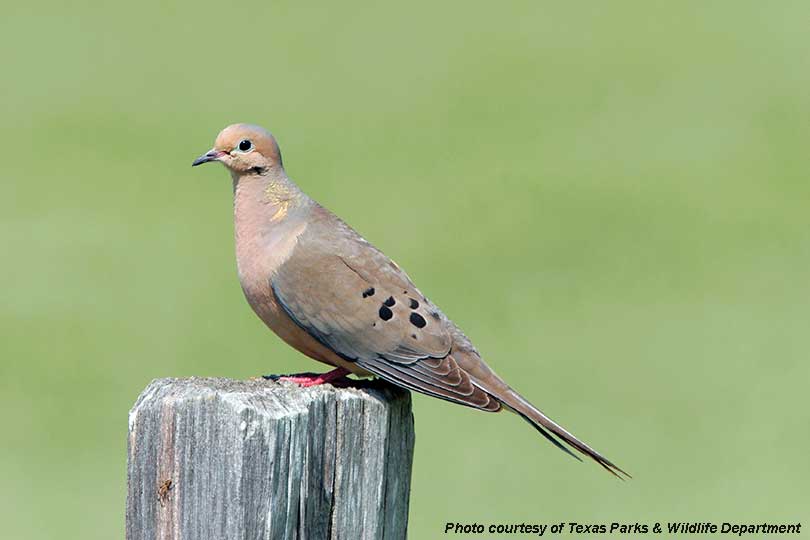Texas dove hunters in much of the central zone have reported slow hunting and scattered birds since the opening of the regular hunting season Sept. 1.
Hunters in the north and south zones, where birds have been more plentiful and consistent, have fared much better.
Bob Thornton is the founder of the Texas Dove Hunters Association (TDHA). He told the Texas Farm Bureau Radio Network that it’s hoped the arrival of cooler weather will improve hunting prospects through the end of the regular season—Nov. 6 in central zone and Nov. 13 in north and south zones—and during the split season that opens statewide Dec. 17.
He said cooler weather also triggers a change in hunting strategy for many wingshooters.
“As the weather changes, the feeding and watering habits of the birds will change. For instance, you’ll want to start looking at some good tank hunts, because earlier in the season, you probably didn’t have a good tank hunt because there was plenty of water for the birds to find,” Thornton said.
“Obviously, when you are talking about a cold season, the birds don’t want to travel too far. So, you’ll want to place yourself around a food source and a water source on just about every hunt.”
Thornton said about 200 hunters are expected at a special dove hunt in Frio County on Dec. 17, opening day of the split season in the south zone.
Busted Feathers Outfitters is hosting a day of dove hunting, BBQ, live music and door prizes. Proceeds from the family event near Pearsall benefit the TDHA Pullin for Kids Scholarship Fund. Details are available at www.texasdovehunters.com.
“They historically have tons of birds. It’s going to be a huge event,” Thornton said.


Hmm. Maybe it’s time to take a look at the effectiveness of killing off our wildlife. If you want it there to look at, to track or whatever, stop slaughtering it. With assaults from over-hunting, development, chemical contamination and changing weather patterns, birds can use your protections. Make your life about life, not death.
You clearly do not understand the intricacies of a migrant species, and the complexities and controls TPWD has in place to ensure population control and avoid over-hunting.